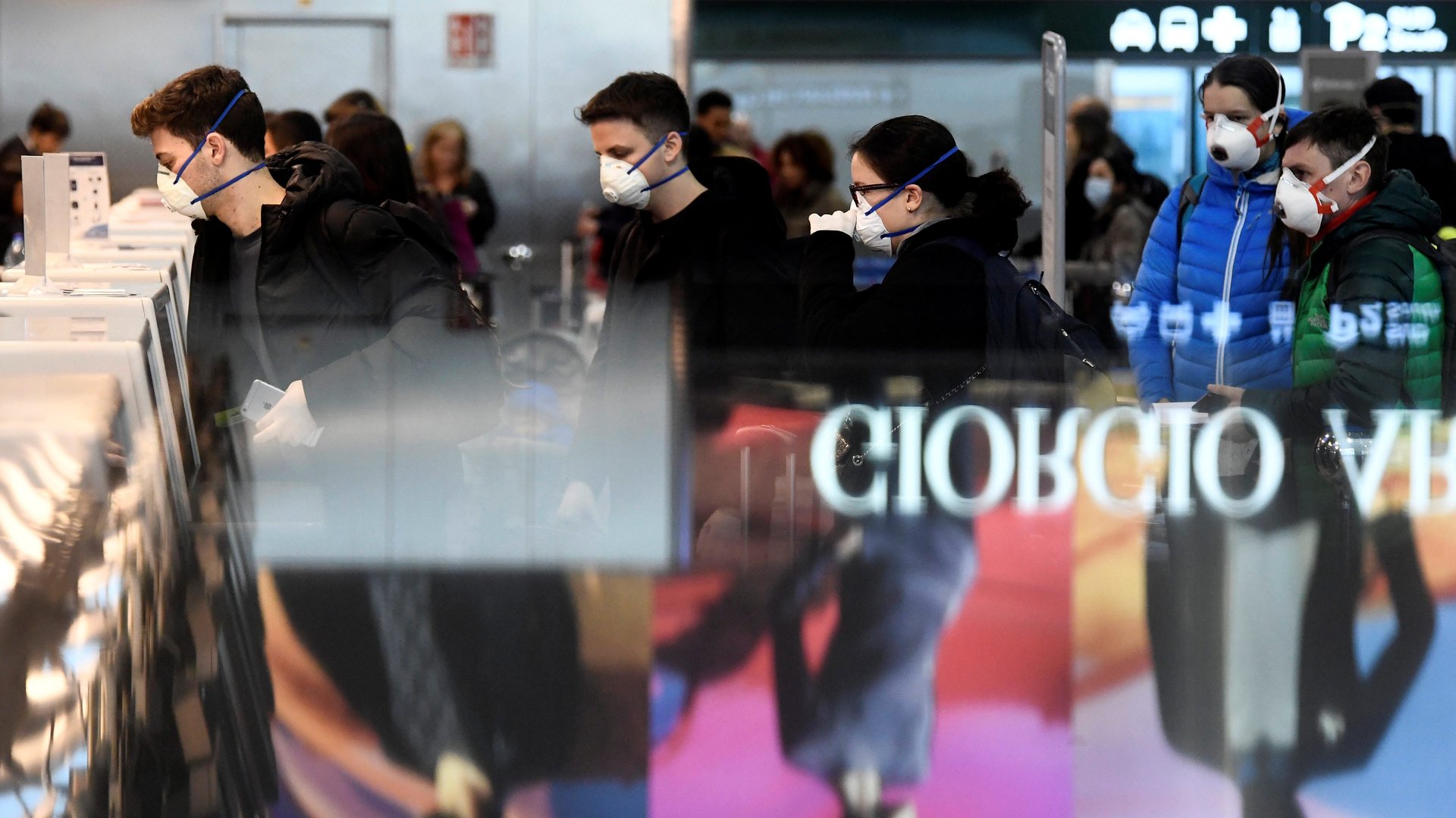As Italy orders drastic measures to stop coronavirus, some get ingenious
“We should not try to be clever,” asked Giuseppe Conte, the prime minister of Italy, in the early hours of Sunday. “We should stick to these new measures, which might impose sacrifices,” he said of new rules that put large swaths of the country’s north, an area covering 16 million people, under lockdown. Significantly, he used the word “furbo” in his warning, which can carry a negative connotation outside of Italy—like “cunning”—but which is often used as a compliment here, meant to mean something like “clever.”


“We should not try to be clever,” asked Giuseppe Conte, the prime minister of Italy, in the early hours of Sunday. “We should stick to these new measures, which might impose sacrifices,” he said of new rules that put large swaths of the country’s north, an area covering 16 million people, under lockdown. Significantly, he used the word “furbo” in his warning, which can carry a negative connotation outside of Italy—like “cunning”—but which is often used as a compliment here, meant to mean something like “clever.”
Despite Conte’s call, there were attempts at ingenuity. Even as messages and videos started circulating on social media on Sunday of public figures asking people to stay home, Milan’s main railway station was packed as many tried to escape the city before the new rules began to be enforced. And even as the prime minister talked of a “national emergency,” one of the main shopping streets of Milan looked as crowded as on any other Sunday evening.
The aggressive rules are a reaction to yet another drastic surge in coronavirus cases in Italy. This weekend, it recorded the largest daily rises in both cases and deaths since the outbreak started in February. The number of infections jumped to 7,370, more than any country in Europe (France has about 1,120, Germany has just over 900), and the number of deaths increased to 366, more than any country other than China. Italy’s health system is at the brink of collapse, with care units dedicated to coronavirus patients being set up in corridors, operating rooms, and recovery areas of hospitals in Lombardy, the hardest hit region.
The rules, which are set to remain in place for a month, also limit the movement of a quarter of the country’s population. While airports, train stations, and public transport are still working, people are only allowed to leave the quarantined areas, which include the entire region of Lombardy (and its capital, Milan) and areas in four other regions (including Venice), for work or health reasons. Prison visits are no longer allowed, which led to riots in detention centers across the country, and six deaths.
Public gatherings are also limited. Museums, cultural centers, gyms, and swimming pools in the quarantined regions must remain closed. Bars and restaurants can only operate until 6pm, and must guarantee that customers are one meter apart—the owners say the regulation is impossible to enforce. Italy’s soccer league continues, but is being played in empty stadiums. The sports minister thinks the competition should be canceled.
The World Health Organization praised the new rules, and more European countries seem set to copy them, but opposition politicians are critical. On Sunday, Attilio Fontana, the president of the Lombardy region, and a member of the far-right party Lega, called the implementation of the rules a “mess.” Luca Zaia, the president of the region of Veneto, and also a member of the Lega, said the measures were “exaggerated and untimely.”
While some Italians looked for a way around the rules, many chose to abide by them, especially outside Milan, in smaller and less busy cities, where the outbreak can be more keenly felt. In Bergamo, at the center of the hardest-hit province in Italy, streets are deserted and silent, except for the sound of ambulances.
People are complying with the new measures even outside the quarantined regions. In Rome, Pope Francis held his Sunday service via video, and the Vatican said today that he will also hold daily masses via live stream. The Scuderie del Quirinale, which just opened a blockbuster Raphael exhibition that was supposed to rival last year’s Leonardo da Vinci show at the Louvre, chose to close its doors.
Later on Sunday, hours after his stern address to the nation, Conte spoke more candidly about the demands that the outbreak is placing upon Italians, including himself. “It’s not easy to change, from one day to the next, habits of an entire life, and to accept personal sacrifices for the collective good,” the prime minister told newspaper Repubblica. “If we all respect the rules, the country will soon be able to get back on its feet.”